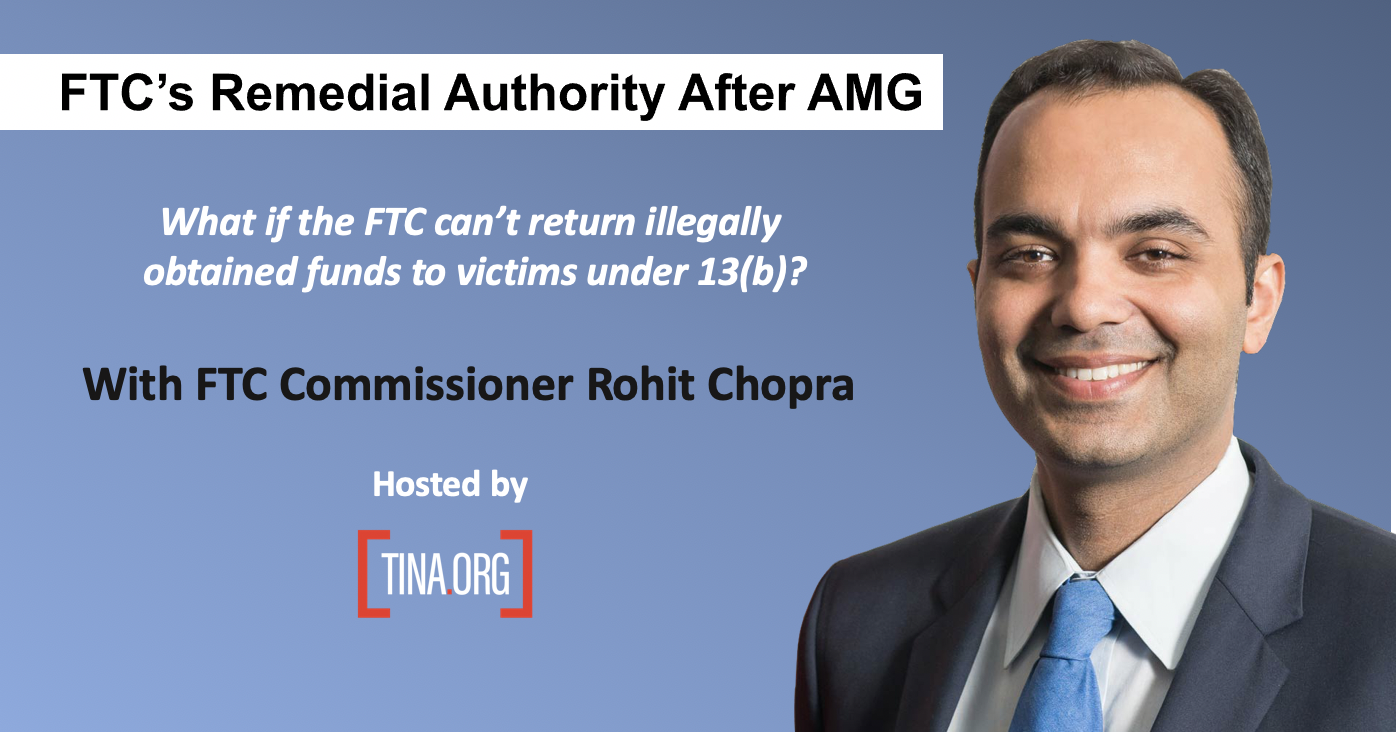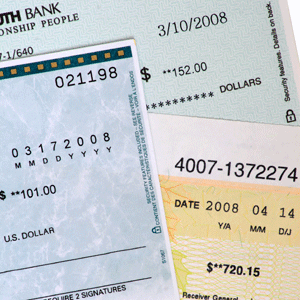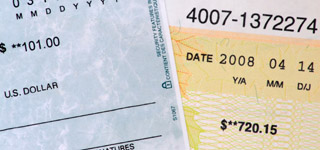
TINA.org Webinar: FTC’s Remedial Authority After AMG
In case you missed it, watch the webinar with FTC Commissioner Rohit Chopra.
So you come home at 6:00 PM, and begin leafing through your mail. In an oddly-official-looking envelope from a company you’ve never heard of, you find a check for $250 made payable you! Your next piece of mail is a A magical piece of plastic made by banks that is sent to your home (normally accompanied with countless pages of fine print disclosures) that allows you to buy virtually anything offer informing you that you’ve been “pre-screened” for credit approval. Wow! And you didn’t even have to apply for the card. But hold on – is that $250 check really a check with no strings attached? And is that A very basic, primary way that financial institutions and retailers seek to separate you from your money. Thanks to interest, billing cycles, and extended repayment terms, credit products allow such companies to successfully absorb your money so slowly that, over the long-term, you may not even notice that you’re paying considerably more for your purchases than you would have otherwise. worth getting?

Any unsolicited check or offer of credit received by a consumer as a part of a direct mail marketing, e-mail, or telemarketing campaign should be viewed with healthy suspicion – and sometimes extreme suspicion. Typically, check promotions come with significant strings attached that can translate to charges being posted to a credit or bank account for an extended, even indefinite, period of time. In return, the consumer can often receive little or nothing of substantive value.
Examples include getting a check in exchange for signing up for a “credit protection” plan that might make the minimum payment on a credit card account for a given period of time (perhaps 12 months) should the account holder become unemployed or disabled. Others involve a straightforward offer of a Visa or MasterCard, which may come with an annual fee that can run anywhere from $30 to $100.
So what does “pre-screened” really mean, anyway? You have been pre-screened when your credit profile has been evaluated and deemed to meet certain minimum credit criteria set by the company making the solicitation (i.e. you look like a moneymaker to them). Such offers of credit, by themselves, won’t hurt your credit score, but the sheer volume of offers you get is not only annoying but also dangerous as it can set you up for a case of identity theft.
What You Can Do
Fortunately, there are a number of tools available that consumers can use to opt-out of such solicitations and be removed from future mailing lists. First, recipients of such materials can opt out of marketing campaigns for five years by calling (888) 5-OPT-OUT or visiting www.optoutprescreen.com, where consumers can opt out of such programs permanently. Written requests can also be made directly to the major credit reporting companies at the following addresses below.
(Please note that when making opt-out requests directly to the credit reporting companies, you will be asked to include your name, phone number, mailing address, date of birth, and Social Security number. And don’t expect your opt-out request to happen overnight. You should see a difference in a week or two but it can take as long as two months for the flow to stop completely.)
In case you missed it, watch the webinar with FTC Commissioner Rohit Chopra.
Experts weigh in on how to avoid being a victim of these latest campus scams.
These brand-relationship disclosures are far from world-class.


